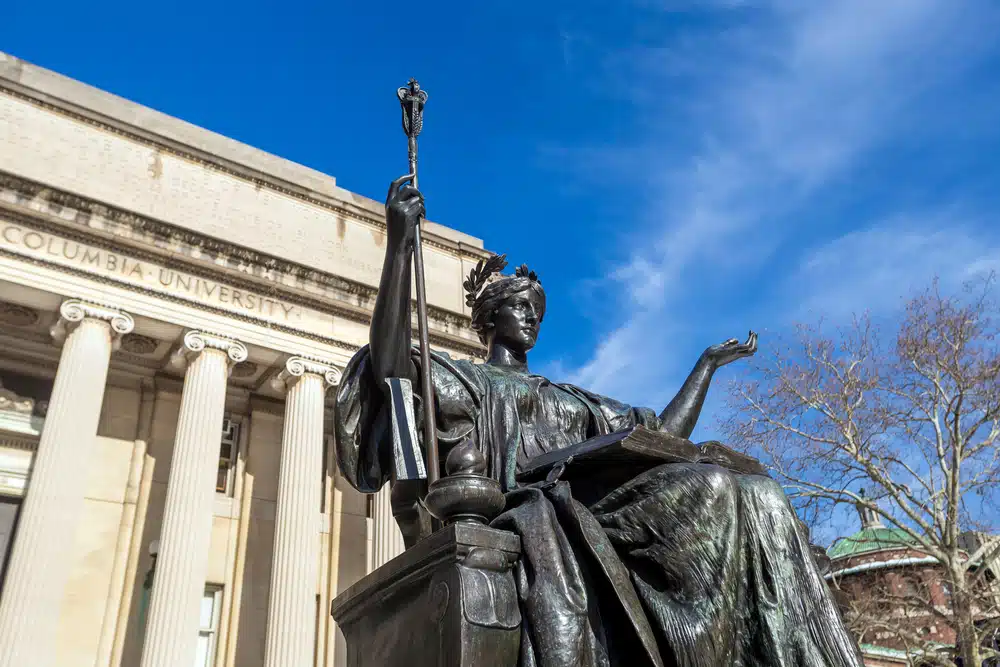Exploring Pre-Med at Columbia University
Making the decision to pursue medicine as a career can be both thrilling and daunting. The pathway to becoming a doctor requires substantial dedication, perseverance, and, most importantly, quality education. When one contemplates a reputable institution for a pre-medical track, Columbia University invariably comes to mind. Let’s delve deeper and comprehend what the pre-med track at Columbia University offers.
Understanding the Pre-Med Track
Defining Pre-Med: What Does It Mean?
Before we move forward, it is essential to understand what the term ‘pre-med’ implies. By definition, pre-med refers to the course of study students undertake before they enroll in medical school. This track traditionally includes a balanced curriculum of natural sciences, humanities, and social sciences and requires high academic standings, understandably.
The Importance of Pre-Med Education
Some might wonder about the significance of a designated pre-med track. After all, all medical schools demand a bachelor’s degree, not necessarily a ‘pre-med’ designation. However, the pre-med track is vitally important. It prepares students for medical school’s intensely competitive and challenging nature by giving them a robust foundation in necessary science courses and vital skills such as critical thinking, problem-solving, and ethical decision-making.
Above all, it helps students affirm their commitment to the medical profession, getting a taste of the rigor and demanding lifestyle a doctorate program entails.
Embarking on the pre-med track is not just about fulfilling requirements; it is a transformative journey. Students who choose this path embark on a quest to understand the intricacies of the human body, the complexities of disease, and the art of healing. They immerse themselves in a world where knowledge is power and compassion is the driving force.
During their pre-med education, students delve into the natural sciences, studying subjects like biology, chemistry, and physics. They learn about the inner workings of cells, the chemical reactions that sustain life, and the laws that govern the physical world. Through rigorous coursework and hands-on laboratory experiences, they deeply understand the scientific principles underpinning medicine.
However, the pre-med track is not limited to science alone. It recognizes the importance of a well-rounded education and encourages students to explore the humanities and social sciences. By studying subjects like literature, philosophy, psychology, and sociology, pre-med students gain a broader perspective on the human experience. They learn to appreciate the cultural, ethical, and social factors that shape healthcare and influence patient outcomes.
Furthermore, the pre-med track fosters the development of critical skills that are essential for success in medical school and beyond. Students learn to think critically, analyzing and synthesizing complex information into coherent conclusions. They hone their problem-solving abilities, tackling challenging scenarios and finding innovative solutions. And they cultivate ethical decision-making skills, grapple with moral dilemmas, and learn to navigate medical ethics’ complexities.
But perhaps the most significant impact of the pre-med track lies in its ability to shape students’ personal and professional identities. Students gain a deeper understanding of their strengths, values, and aspirations through their coursework, clinical experiences, and interactions with faculty mentors. They develop a sense of purpose and a commitment to serving others, recognizing that medicine is not just a career but a calling.
The Pre-Med Curriculum at Columbia University
Core Courses for Pre-Med Students
At Columbia University, the pre-med curriculum is designed to equip students with a strong foundation in science and a deep understanding of the healthcare system. Students have the opportunity to finish the academic requirements necessary for admission to schools of osteopathic medicine, allopathic medicine, veterinary medicine, dentistry, and graduate programs in allied health through Columbia University’s Post Baccalaureate Pre-Med Program.
Core courses include english, math, biology, biochemistry, general chemistry, organic chemistry, physics, and psychology. These foundational courses help students understand human anatomy, biochemistry processes, and the laws of physics that underlie the mechanical and thermal properties of the human body.
For example, in biology courses, students delve into the intricate workings of cells, exploring topics such as cellular respiration, DNA replication, and protein synthesis. They also study the various organ systems of the human body, including the cardiovascular, respiratory, and nervous systems, gaining a comprehensive understanding of how these systems function and interact.
In the chemistry courses, students learn about the fundamental principles of chemical reactions, atomic structure, and molecular bonding. They conduct experiments in state-of-the-art laboratories, honing their skills in analytical techniques and data interpretation. These courses provide the foundation for understanding the chemical processes within the human body and the pharmaceutical interventions used in medical treatments.
Physics courses, on the other hand, focus on the principles of motion, forces, and energy. Students explore concepts such as Newton’s laws of motion, thermodynamics, and fluid dynamics. By understanding the physical principles that govern the human body, pre-med students gain insights into how forces affect the body’s movement and how energy is transferred within biological systems.
Beyond the natural sciences, Columbia also emphasizes the importance of humanities. Courses in sociology, philosophy, or foreign languages add breadth to a student’s education and instill empathy, communication skills, and a global perspective — skills paramount to being an effective physician.
For instance, sociology courses expose pre-med students to the social determinants of health, helping them understand how factors such as race, socioeconomic status, and access to healthcare impact individuals and communities. On the other hand, philosophy courses encourage critical thinking and ethical reasoning, preparing students to navigate the complex moral dilemmas they may encounter in their medical careers.
Language courses, whether Spanish, French, or Mandarin, allow students to communicate with patients from diverse backgrounds. This linguistic proficiency fosters cultural sensitivity and facilitates effective doctor-patient relationships, ensuring that healthcare is accessible and inclusive for all.
Overall, the pre-med curriculum at Columbia University goes beyond the basic science requirements, incorporating humanities and elective options that enrich students’ understanding of medicine and prepare them to be compassionate, well-rounded physicians.
The Pre-Med Experience at Columbia University
Campus Life for Pre-Med Students
Campus life for pre-med students at Columbia University is a blend of academics, extracurricular activities, and community engagement. Clubs dedicated to pre-med students offer networking events, workshops, and study groups to foster collaboration and mutual support.
In addition to this, numerous on-campus affiliations with several research centers and hospitals in New York give students a chance to gain practical insight through volunteering or shadowing professionals on the job. These real-world experiences are instrumental in providing a clearer vision of their future career in medicine.
One popular club on campus is the Charles Drew Pre-Med Society, which organizes regular guest lectures by renowned medical professionals. These lectures cover a wide range of topics, from the latest advancements in medical research to the challenges faced by doctors in underserved communities. Attending these lectures not only expands students’ knowledge but also allows them to interact with experts in the field.
Moreover, Columbia University hosts an annual Pre-Med Conference, bringing pre-med students from various universities nationwide. This conference features keynote speakers, panel discussions, and workshops on topics such as medical school admissions, research opportunities, and healthcare policy. It serves as a platform for students to learn from industry leaders and connect with peers who share their passion for medicine.
Support Services for Pre-Med Students
Columbia University offers ample support for pre-med students. These include comprehensive academic advising, tutoring services, and career counseling. The university is also geared towards the personal development of these students, providing mental health and wellness resources.
Furthermore, the Postbaccalaureate Premedical Program Office provides guidance to students as they navigate their pre-med journey. They offer one-on-one advising sessions, helping students choose the right courses, explore research opportunities, and plan their extracurricular involvement. The advisors also assist students in crafting compelling personal statements and preparing for medical school interviews.
Additionally, Columbia University has a dedicated Pre-Med Resource Center equipped with a vast collection of books, journals, and online resources. The center provides access to practice MCAT exams, medical school admission guides, and research publications. It serves as a hub for pre-med students to enhance their knowledge and stay updated with the latest developments in the field.
Furthermore, the university organizes regular workshops on study skills, time management, and stress management specifically tailored for pre-med students. These workshops aim to equip students with the necessary tools to excel academically while maintaining a healthy work-life balance.
In conclusion, the pre-med experience at Columbia University extends beyond the classroom. The university’s commitment to providing a supportive and enriching environment for pre-med students is evident through its wide range of clubs, resources, and support services. From networking opportunities to practical experiences, Columbia University equips its pre-med students with the skills and knowledge necessary to succeed in their future medical careers.
Preparing for Medical School Admission
MCAT Preparation at Columbia University
The Medical College Admission Test (MCAT) is a critical step for any pre-med student. At Columbia University, students get a rigorous foundation through their coursework that prepares them for the wide-ranging topics on the MCAT. The university also offers MCAT prep courses through the School of Continuing Education, providing students with the resources and strategies they need to succeed.
Application Process and Timeline
Applying to medical school is a complex and time-consuming process. Pre-med students usually apply in their junior year (third year), a year before they plan to start medical school. This gives them enough time to prepare for MCAT test, collect recommendation letters, and compile a compelling medical school application.
Columbia University provides ample support during this process – from workshops that explain the logistics of the application process to one-on-one counseling sessions to review personal statements and prepare for interviews.
Future Opportunities for Columbia Pre-Med Graduates
Medical Schools Columbia Graduates Attend
The rigorous pre-med track at Columbia University prepares its students for some of the best medical schools in the nation and worldwide. Columbia pre-med graduates have been accepted to a range of esteemed institutions, including Harvard Medical School, Johns Hopkins School of Medicine, University of California San Francisco, and Columbia’s very own Vagelos College of Physicians and Surgeons.
Career Paths for Pre-Med Graduates
Once they complete medical school, Columbia pre-med graduates have a multitude of paths they could follow. Many become doctors, specialists, or surgeons in areas ranging from pediatrics to neurosurgery. Some students choose research and academia, contributing to the constant evolution of medical science.
Others might pursue a career in public health or policy-making, shaping healthcare systems at a macro level. The robust pre-med program at Columbia University, therefore, doesn’t only prepare students for medical school but provides them a launchpad to diverse careers in health and medicine.
In conclusion, the pre-med track at Columbia University serves as a comprehensive stepping stone to a career in medicine. From a vigorously designed curriculum to a supportive learning environment, students are well-prepared for the endeavor that awaits them in their journey to becoming successful physicians.
If you need help putting the finishing touches on your college applications, at AdmissionSight, we have over 10 years of experience guiding students through the competitive admissions process
AdmissionSight can help you put your best foot forward when applying to college this fall. Contact us today for more information on our services.








































